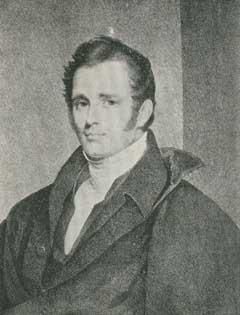Howard Malcom (1799-1879) is one of the most prominent Northern (American) Baptist pastors in the United States, as well as a leading missionary advocate and denominational statesman. His pastorates include churches in Hudson, Boston and Philadelphia, while his missionary travels take him to Asia and Africa. Denominationally, at various times he holds leadership positions in the American Baptist Historical Society, the American Tract Society, the Pennsylvania Baptist Education Society, the Pennsylvania Colonization Society, and the American Peace Society.
Today, the American Peace Society convenes and calls for peace between the United States and the Confederacy. With the Confederacy reeling from recent Union victories and advances southward, many northerners hope peace may be attained shortly.
Malcom is president of the Society. Fellow Northern Baptist leader Francis Wayland serves as a vice-president. Malcom has recently made his views known regarding the traitorous Southern states.
The present struggle can be called a war only in view of its large proportions. The rebels clutch at the nation’s throat, and avow a purpose to take the nation’s life–to make slavery, in every sense, national, and to substitute a “strong government” instead of a Republic. They avow personal, intense and immortal hatred of Yankees, as they call all free State people.
I see no sufficient reason for the Peace Society to strike its flag, or mask its batteries. Our sole aim is to supersede national duels, by fixed, plain, comprehensive, authoritative international law. We have in our ranks every variety of political economists, and moralists. So have Temperance Societies, and all other benevolent societies. But I believe we have no constituent who denies the right of self-defense against the prowling burglar or the frenzied crowd.
Sources: Howard Malcom bio and photo (link); Malcom’s remarks (link); Malcom’s May 26, 1862 address, “Signs of the Times Favorable to Peace” (link); Francis Wayland bio (link)



